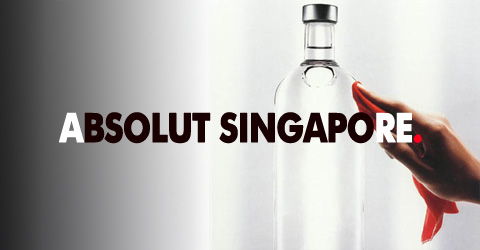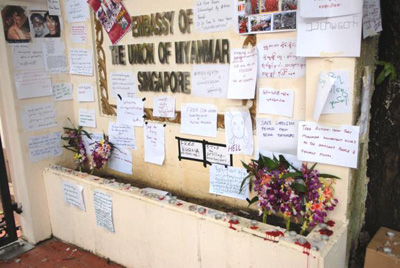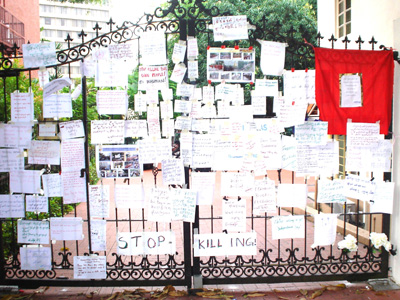MR J.B. Jeyaretnam (JBJ) died from heart failure at 2.57am on 30th September 2008.
A couple of years ago, I saw him hawking the sale of his book, “The Hatchet Man of Singapore” outside CentrePoint. His gaunt and haggard looks convinced me that his days were somewhat numbered. So a couple of weeks later, I asked my SMU friend to purchase a copy of his book with his autograph for me. I rationalized that that the autographed book would indeed be worth a lot when his time is up.
Silly me, right?
Fast forward to 2008, he had been freshly discharged from bankruptcy and registered his new party, Reform Party. A potential political battle was brewing as sideliners speculated a showdown between him and Lee Kuan Yew for the next general election. And most recently, he intended to challenge the High Court over the decision not to conduct a by-election in Jurong GRC following the death of one of the MPs, Dr Ong Chit Chung.
But yesterday, he passed away.
All that political ambitions he harboured had seemed to gone to waste. (Unless his son, Philip Jeyaretnam decides to take up that formidable baton, that remains as pure speculation.)
Throughout his life, he has lived beyond his ideals could take him.
Representing the Workers’ Party, he shattered parliamentary monopoly held by People’s Action Party (PAP) in the landmark 1981 Anson by-election. Re-elected again in the 1984 General Election, his presence in parliament was indeed unwelcomed.
JBJ soon learnt that being a pioneer in opposition politics does not translate to a red-carpet treatment. In the next couple of years that follow, he was ousted and prevented from participating in the next election by not-so-inconspicuous political engineering. Even after managing to return to parliament as a non-constituency MP in the 1997 General Election, his stay was short-lived, thanks to the slew of defamation lawsuits which quickly bankrupted him.
While Chee Soon Juan would purposefully go against “unjust laws” in hope of revealing the purportedly biased nature of the judiciary system, it was my study on JBJ’s cases that personally convinced me that the local judiciary isn’t as impartial and independent.
The International Bar Association has summarized the inequities that JBJ had suffered in its July report on Singapore Judiciary System, pages 30 to 35. Presented in a very comprehensible manner, you can download the report from:http://www.ibanet.org/images/downloads/07_2008_July_Report_Singapore-Prosperity_versus_individual_rights.pdf
As I flipped to my autographed copy of “The Hatchet Man of Singapore”, there lingers a tinge of regret. The opportunity to meet him on a personal level had slipped by…
For your conviction and commitment, tenacity and valour, principles and ideals, integrity and honour, I salute you, Joshua Benjamin Jeyaretnam.
A great inspiration for Singaporeans, who aspire to be that political giant you have been.
God Bless.













